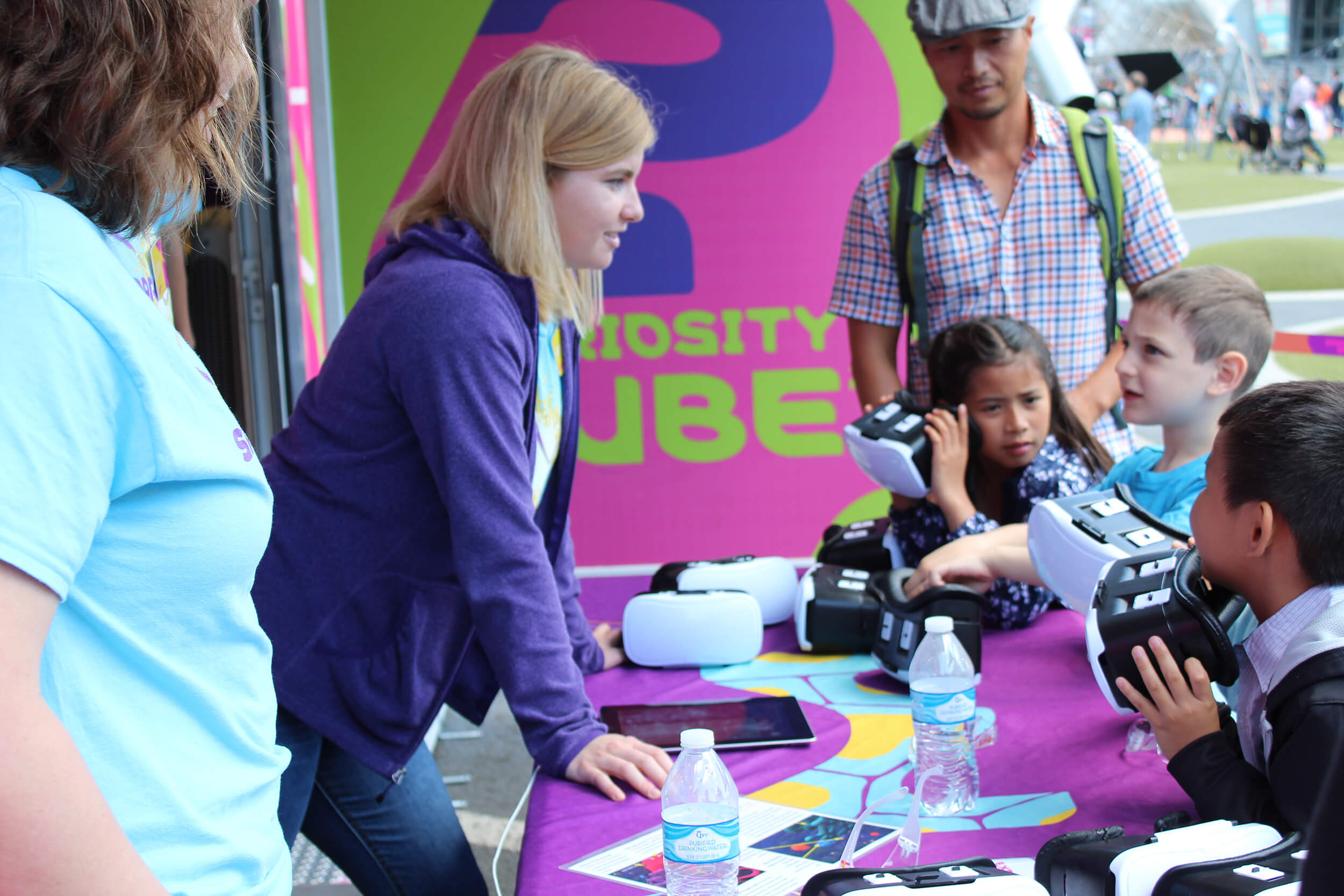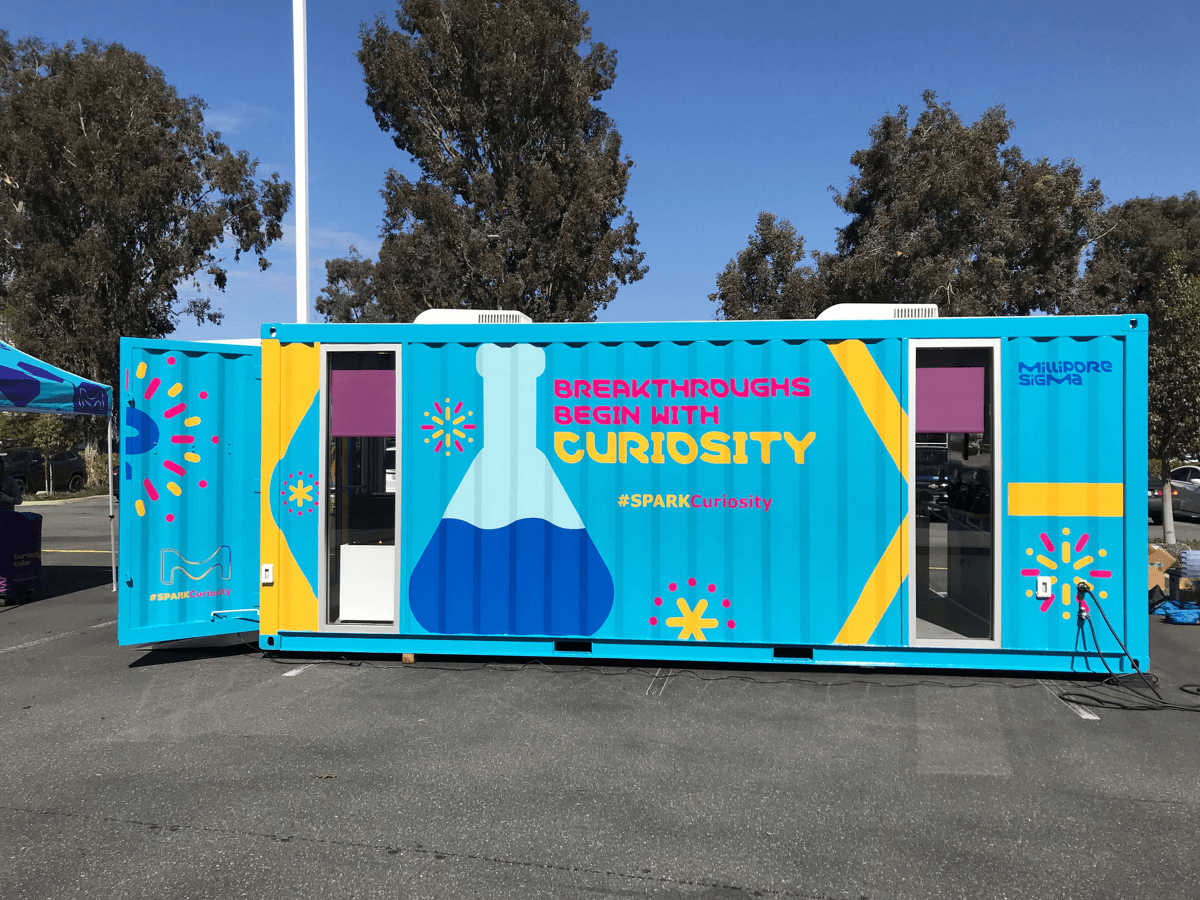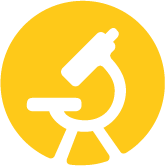Breakthroughs begin with the Curiosity Cube Sparking Curiosity in the Next Generation of Scientists
OUR STORY
Always Curious
As a life science company, curiosity has always been the force that drives us and continues to motivate us. The Curiosity Cube is an extension of our desire to put our expertise in science and technology to work for human progress.
The Curiosity Cube program began in 2017 as a platform to increase access to science education for 8-13 year-old students. Building on our Curiosity Labs program, in which our employees go into classrooms and conduct hands on experiments with students, the Curiosity Cube allows us to extend our impact beyond the classroom to reach even more students and their families at schools and public events.
The Curiosity Cube experiments are led by local MilliporeSigma employees, giving students an opportunity to learn from “real life” scientists and ask questions about a future career in STEM!

Focus on Science Education
Inspiring the next generation
According to the U.S. Bureau of Labor Statistics, the science, technology, engineering and math (STEM) sector is growing faster than any other in the U.S., yet there are more STEM opportunities than there are students to fill these positions.
With an expanding workforce that calls for more graduates to fill the pipeline, MilliporeSigma is committed to hands-on, interactive STEM education programs. Science industry experts agree that these hands-on experiences are critical to sparking student interest in STEM careers.
Our science education outreach programs are modeled on the principles of inclusion and equity. We focus on underrepresented populations in science, including people of color and women. We model this behavior as diverse leaders and volunteers work directly with students in their own communities.
We want to inspire young students by showing them that scientists all over the world, who look just like them, are working to create a better tomorrow.
Our science education programs are designed to spark scientific curiosity and passion early, paving the way to a future filled with innovative breakthroughs and encouraging students to pursue careers in STEM fields.

INSIDE THE CUBE

Equipped with the latest technology, the Curiosity Cube provides a learning environment that allows visitors of all ages to become immersed in specific science topics. When visitors enter the Curiosity Cube, they are scientists for the day, participating in hands-on science experiments and learning about new technologies. Every visitor is encouraged to ask questions and to be curious.
CURRENT EXPERIMENTS
Exploring More Sustainable Fabrics
Students examine different types of synthetic and natural fabrics utilized in the fashion industry and categorize them based on their level of sustainability.
Sustainable Operations
Students will design and test a windmill that produces enough renewable energy to power a model t-shirt factory.
Recycling a T-Shirt
Students explore the process of recycling an old t-shirt into a new one. They will learn how old clothing can be sorted, shredded into fibers, and re-spun into thread for new garments. They will also learn ways to minimize their own environmental impact in the fashion industry.
OUR IMPACT
Since its inception in 2017, the Curiosity Cube has provided a chance for children to explore science in a structured yet, flexible environment. Research shows that this exposure is key to helping children believe that they can pursue a STEM career. This is especially important for children who lack access to high quality and technology-driven scientific learning experiences. We aim to bring hands-on learning opportunities to students who might not otherwise have these types of activities in their classroom, such as those in schools with fewer resources.

605
Communities Served

95%
Title 1 Schools

186,647
Students Reached

31,203
Volunteer Hours

88%
of students say they are more interested in science after visiting the Curiosity Cube.
